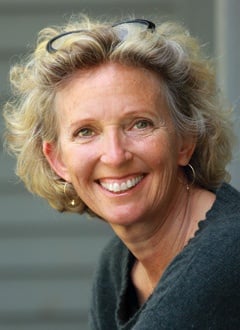
When we think of what children learn in school, we tend to think of things like getting better at solving algebra problems, analyzing literary passages, and identifying important events in history. But actually, those very specific skills rest on more fundamental thought processes.
When we think of what children learn in school, we tend to think of things like getting better at solving algebra problems, analyzing literary passages, and identifying important events in history. But actually, those very specific skills rest on more fundamental thought processes.
For example, algebra rests on understanding the relationships between the whole and its parts, literary analysis depends on imagining a world conjured only through words, and history depends on the ability to imagine changing around various components of a sequence so that the outcome of an event might be radically different. Those more fundamental, powerful thought processes do not begin when children get to school and encounter problems in workbooks and quizzes. They begin earlier, in much messier and more complex everyday experiences.
Consider a nonmath example, the all-important ability to think counterfactually. We draw on this skill every time we think about hypotheticals. The ability to think about how things might have turned out given alternative events, or how things might turn out in the future under various scenarios, is one of the capacities that sets us apart from all other species. Children of two cannot engage in such thinking. Their thoughts are still too rooted in the here and now. And yet, they begin working on this foundational skill when they engage in pretend play. Once in school, this capacity, brought to bear on other material, and done mentally rather than in play, becomes a cornerstone of what it means to be a thinker. It allows us to think not only about the way the world is but also about how it might be under various circumstances. We need that kind of thinking in medicine, in science, in politics, in engineering, and in any situation where we are called upon to figure out a solution to a problem for which straightforward tinkering won’t work and we can’t simply follow someone else’s procedures or instructions.
•••

 Susan Engel is a Senior Lecturer in Psychology and Founding Director of the Program in Teaching at Williams College. She currently serves as the Williams College Gaudino Scholar, a position that creates and promotes opportunities for students to stretch beyond what they are familiar with. She has taught all ages from three year olds through college. Her research interests include the development of curiosity, children’s narratives, play, and more generally, teaching and learning. Her current research looks at the development of children’s ideas. Her scholarly work has appeared in journals such as Cognitive Development, Harvard Educational Review, and the American Education Research Journal.
Susan Engel is a Senior Lecturer in Psychology and Founding Director of the Program in Teaching at Williams College. She currently serves as the Williams College Gaudino Scholar, a position that creates and promotes opportunities for students to stretch beyond what they are familiar with. She has taught all ages from three year olds through college. Her research interests include the development of curiosity, children’s narratives, play, and more generally, teaching and learning. Her current research looks at the development of children’s ideas. Her scholarly work has appeared in journals such as Cognitive Development, Harvard Educational Review, and the American Education Research Journal.
She is the author of seven previous books: The Stories Children Tell: Making Sense of the Narratives of Childhood, Context is Everything: The Nature of Memory, Real Kids: Making Sense in Everyday Life, Red Flags or Red Herrings: Predicting Who Your Child Will Become, The Hungry Mind: The Origins of Curiosity in Childhood, The End of the Rainbow: How Educating for Happiness (Not Money) Would Transform Our Schools, and most recently, A School of Our Own: The Story of the First Student-Run High School, and a New Vision for American Education which she co-wrote with her son Sam. Her writing on education has appeared in The New York Times, The Nation, The Atlantic Monthly, Salon, The Huffington Post, and The Boston Globe.
Susan is one of the founders of an experimental school in New York State, where she served as educational advisor for eighteen years. She lives in New Marlborough, Massachusetts with her husband Tom Levin. They have three sons, Jake, Will, and Sam.
Related Reading

Motivation is as much a process as it is a feeling. - Susan Engel

